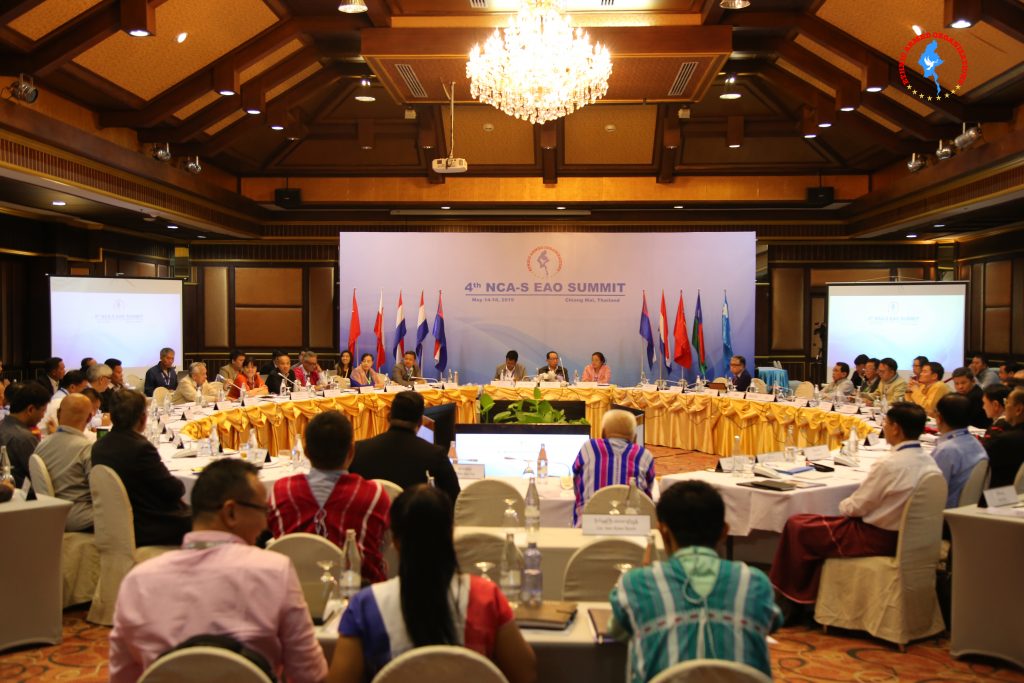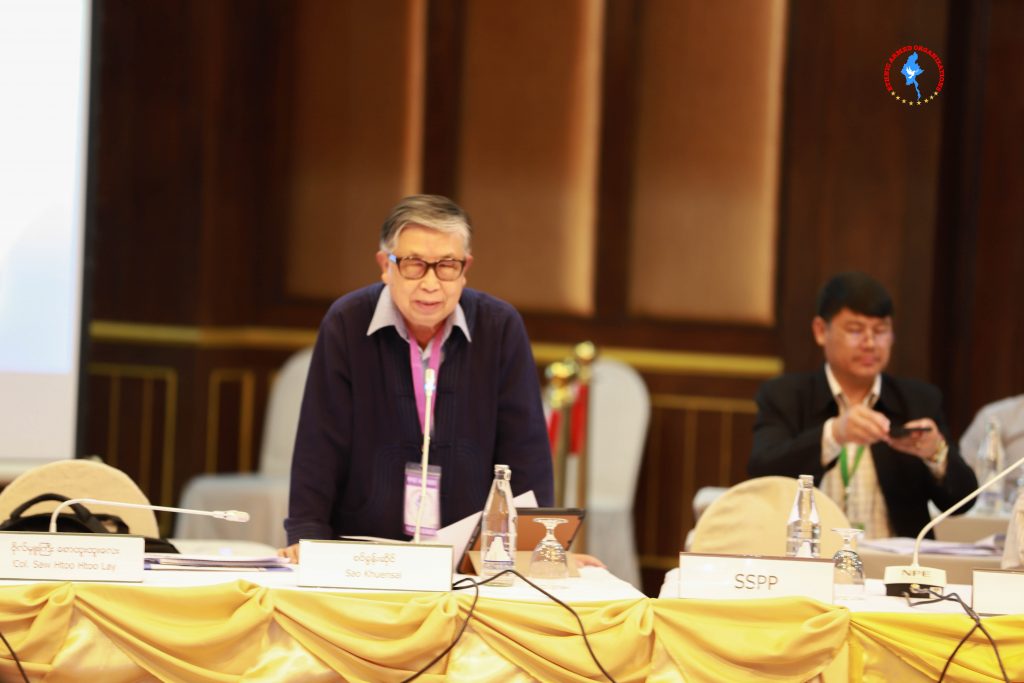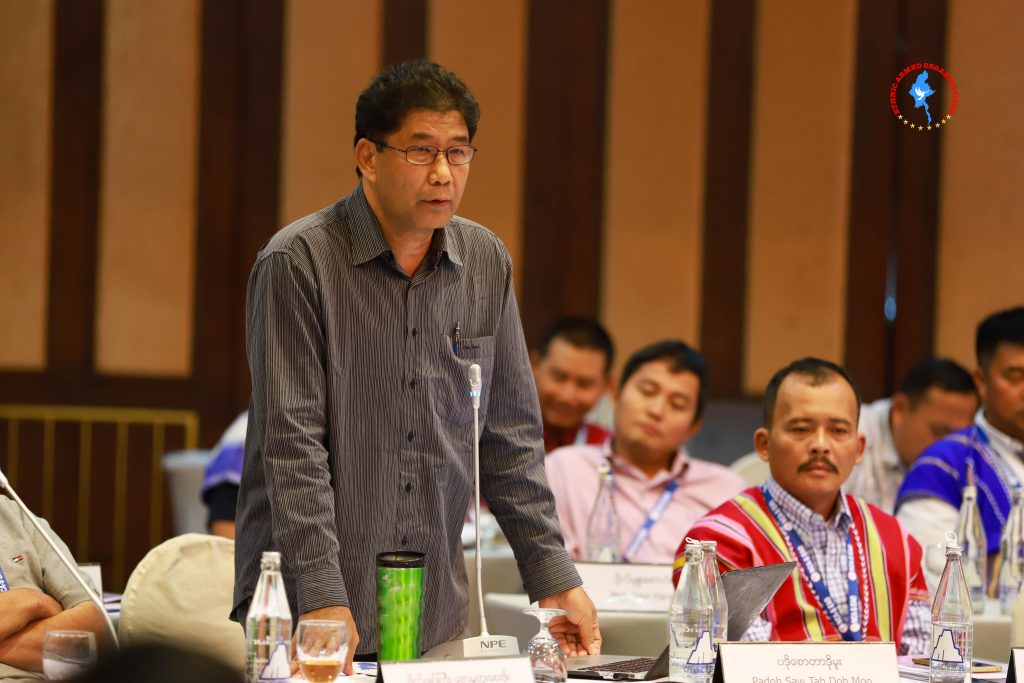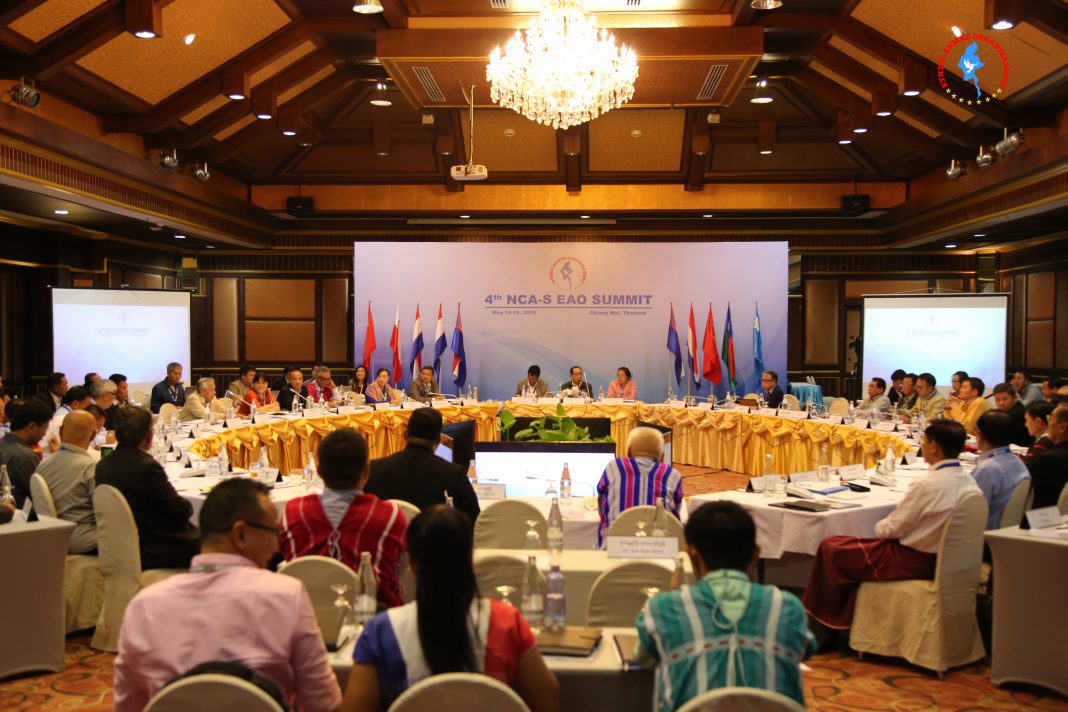Once again, on June 7, the Tatmadaw or Myanmar military attache for Thailand brigadier general Khin Zaw wrote to his Thai counterpart colonel Pattana Punmongkol to help obstruct the meeting of Nationwide Ceasefire Agreement (NCA)-signatory Ethnic Armed Organizations (EAOs), which he said would be attended by NCA-non-signatory EAOs, the Kachin Independence Army (KIA) and Karenni National Progressive Party (KNPP), as it is against against the country’s peace process deliberations.

The letter wrote: “I would like to inform you the prescheduled meeting would definitely disrupt the NCA peace process which (is) still under implementation of Myanmar Government and Myanmar Armed Forces to be able to restore eternal peace across the country.”
“In this connection, it is kindly requested to collaborate with concerned authorities to obstruct from organizing such meeting,” added the letter.
And thus, the 10 NCA-Signatory EAOs meeting to work out a solution on whether the Peace Process Steering Team (PPST), which is their negotiation body and think-tank, is to remain in tact, dissolved, or keep it as it is in parallel with the proposed and to be formed Peace Process Consultative Meeting (PPCM) were unable to be decided due to the Thai authorities’ interruption not to hold the meeting, as requested by the Myanmar military attache.
The meeting to decide on the PPCM formation was held from June 5-7 but unable to come up with a decision among the NCA-signatories. The follow-up meeting scheduled for June 8-9 was stopped by the Thai authorities.
The Thai authorities has never interrupted the 10 NCA-Signatory EAOs’ meeting before. But they did stopped the Committee for Shan State Unity (CSSU) meeting once in July 2017, due to the reasoning of the Tatmadaw’s disagreement with the participation of Shan State Progress Party/Shan State Army (SSPP/SSA), which has not yet signed the NCA, and as well the attendance of Sao Harn Yawnghwe, who was rumored to have been blacklisted by the government.
Regarding the present blockage issue, question arises why the Tatmadaw is against the deliberation to find common consensus among all the EAOs, NCA-signatories and non-signatories, which the KNU general secretary Saw Tah Doh Moo finds it quite unreasonable.
In peace process as all-inclusiveness is a necessity and meeting of NCA-signatories and non-signatories should not be forbidden, he said. “This kind of blockage could affect the peace implementation process and shouldn’t happen that way,” he added explicitly.

In the same vein, Khuensai Jaiyane director of the Pyidaungsu Institute and senior advisor of the Restoration Council of Shan State (RCSS) told the media: “Now when discussing with the government it is only the view of the NCA-signatory organizations. If we are going to build a federal union, views and inputs of non-signatories will have to be included so that it will be comprehensive.”
Regarding the pending formation of the PPCM, he said: “Seven groups wanted to keep the PPST and expand it with the PPCM formation; two are for PPCM and said it should operate separately; one will wait and see and decide on what is good later.”
Saw Tah Doh Moo confirmed that further meeting to clarify the said issue will be conducted.

All in all, Tatmadaw intervention and disruption on the all-inclusive EAOs meeting is not only counter-productive, but could also obstruct the peace process as a whole. To date, political dialogue in Shan state and Arakan state still cannot be undertaken. And without consensus from the ethnic peoples concerned there won’t be concrete desire of the concerned people to be tabled at the Union Peace Conference. Likewise, finding collective goals of all EAOs, Ethnic Political Parties (EPPs) and the ethnic peoples are necessity steps needed in conducting peace negotiation process.
Thus, the act of disrupting all-inclusive EAOs’ meeting is not at all conducive to peace-making and reconciliation, including political settlement. It is time for the Tatmadaw to readjust its mode of thinking and support the constructive EAOs’ approach in conducting the peace process.












Leave a Comments